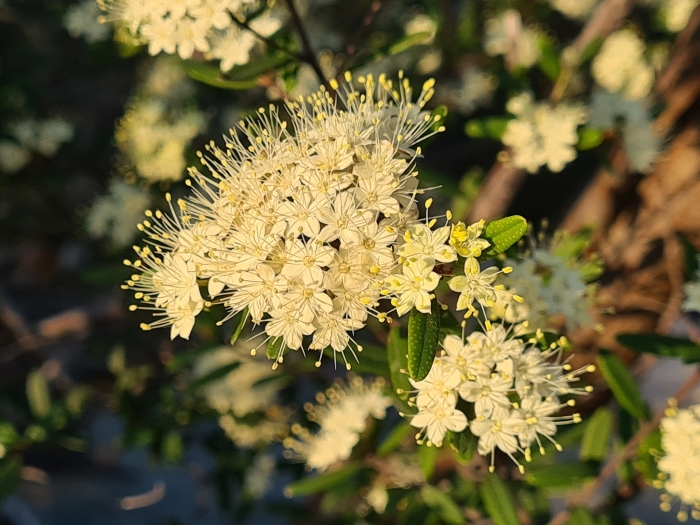Scaly Phebalium
(Phebalium squamulosum)
Scaly Phebalium (Phebalium squamulosum)
/
/

Andrew Harvey
CC BY 4.0
Image By:
Andrew Harvey
Recorded By:
Copyright:
CC BY 4.0
Copyright Notice:
Photo by: Andrew Harvey | License Type: CC BY 4.0 | License URL: http://creativecommons.org/licenses/by/4.0/ | Rights Holder: Andrew Harvey | Publisher: iNaturalist | Date Created: 2021-08-14T15:18:44-07:00 |
































































Estimated Native Range
Summary
Phebalium squamulosum, commonly known as Scaly Phebalium, is an evergreen shrub native to the sclerophyll forests, dry woodlands, and subalpine heathlands of Eastern Australia, particularly in New South Wales, Victoria, and Tasmania. It typically grows to a height of 1-2 meters and a width of 1-1.5 meters. The plant is characterized by its scaly bark and small, leathery leaves that are covered in oil glands. During spring, it produces clusters of small, star-shaped, yellow flowers that are mildly fragrant and attractive to pollinators. The flowers are not particularly showy but add a subtle charm to the plant’s appearance.
Scaly Phebalium is valued for its drought tolerance and ability to thrive in poor soils, making it a suitable choice for low-maintenance gardens and naturalistic plantings. It is often used in cultivation for ornamental purposes, particularly in rockeries, native plant gardens, and as a border shrub. For optimal growth, it requires well-drained soil, moderate watering, and a position in full sun to part shade. While generally pest-free, it can be susceptible to root rot in poorly drained conditions. Scaly Phebalium is not known for aggressive roots or significant disease problems. It is also appreciated for its essential oils, which are sometimes used in aromatherapy.CC BY-SA 4.0
Scaly Phebalium is valued for its drought tolerance and ability to thrive in poor soils, making it a suitable choice for low-maintenance gardens and naturalistic plantings. It is often used in cultivation for ornamental purposes, particularly in rockeries, native plant gardens, and as a border shrub. For optimal growth, it requires well-drained soil, moderate watering, and a position in full sun to part shade. While generally pest-free, it can be susceptible to root rot in poorly drained conditions. Scaly Phebalium is not known for aggressive roots or significant disease problems. It is also appreciated for its essential oils, which are sometimes used in aromatherapy.CC BY-SA 4.0
Plant Description
- Plant Type: Shrub
- Height: 3-6 feet
- Width: 4-6 feet
- Growth Rate: Moderate
- Flower Color: Yellow
- Flowering Season: Spring
- Leaf Retention: Evergreen
Growth Requirements
- Sun: Full Sun
- Water: Low
- Drainage: Fast, Medium
Common Uses
Bee Garden, Butterfly Garden, Low Maintenance, Potted Plant, Rock Garden
Natural Habitat
Sclerophyll forests, dry woodlands, and subalpine heathlands of Eastern Australia
Other Names
Common Names: Forest Phebalium
Scientific Names: , Phebalium squamulosum,
GBIF Accepted Name: Phebalium squamulosum Vent.